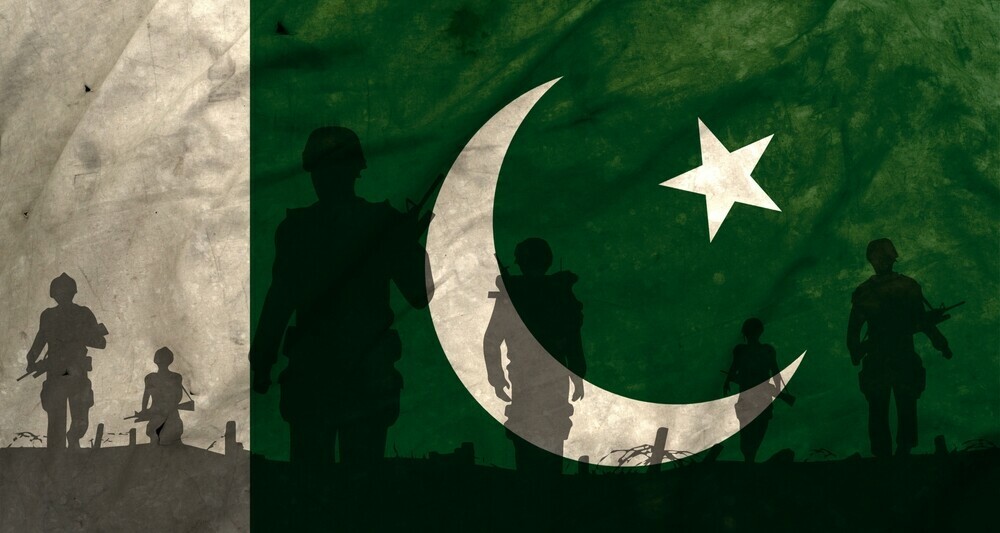The National Action Plan specifically designed for ‘countering domestic threats’ has been in existence for years
 KRC TIMES Desk
KRC TIMES Desk

Harsha Kakar
Pakistan recently announced the launch of a new military operation ‘Azm-e-Istehkam,’ or ‘Resolve for Stability.’ This is intended to counter ‘domestic security threats’ as also increased attacks by freedom fighters (whom Pakistan terms as terrorists), in both, Khyber Pakhtunkhwa (KP) and Baluchistan.
As per the Pak PMO, ‘The campaign will be complemented by socioeconomic measures aimed at addressing genuine concerns of the people and creating an environment that discourages extremist tendencies.’
The National Action Plan specifically designed for ‘countering domestic threats’ has been in existence for years. In other words, the new operationis just ‘old wine in the same bottle but with a new label.’
This is the tenth similar or near similar announced operation since Musharaff launched Operation Enduring Freedom in 2001. It appears that every army chief feels it is his prerogative to plan a replicatecounter-terrorism operation,with a new name, which would bear his stamp and possibly his legacy.
The fact that these are repeated regularly indicates that success achieved is either only in pronouncements to media or at best, temporary.
Currently the internal security environment in Pakistan is deteriorating. As per the Centre for Research and Security Studies, Pakistan has ‘witnessed 1,524 violence-related fatalities and 1,463 injuries from 789 terror attacks and counter terrorist operations in 2023 – marking a record six-year high.’ The situation worsened with the arrival of the Taliban government in Kabul.
The agreement with the TTP (Tehreek-e-Taliban Pakistan), pushed by Kabul in 2022, led to thousands of fighters entering KP, offsetting whatever gains the Pakistan army had made. Few districts of KP are firmly under TTP control, which Islamabad refuses to admit. They remain Pakistan’s greatest threat.

Satisfying concerns of China is another reason for launching this a new security operation. Liu Jianchao, a senior Chinese diplomat, mentioned during his recent visit to Pakistan, ‘We need to improve security and the business environment.
In Pakistan’s case, the primary factor shaking the confidence of Chinese investors is the security situation.’ It was attacks on the Chinese as also the CPEC, which resulted in Shehbaz returning empty handed from his recent begging visit to China.
As per the Dawn, ‘the launching of a new counter-terrorist operation has been largely driven by the threat of Chinese companies pulling out their investment from Pakistan.’
New projects are not being discussed, work on those currently underwayare barely progressing and China appears to be nearing the end of their patience. Whether the operation produces any results is unknown but it would have satisfied the Chinese.
The operation also justifies the 18% hike in the Pak army budget, especially at a time when the economy is sinking. It possibly would have IMF backing as Shehbaz had stated, ‘We had to prepare the budget jointly with the IMF.’ Pakistan would have cried to the US that without enhancing security, Pakistan’s economy would collapse.
Its convincing the US led to IMF approval. The US State Department’s spokesperson, Matthew Miller, mentioned, ‘We support Pakistan’s efforts to combat terrorism and ensure the safety and security of its citizens in a manner that promotes the rule of law and protection of human rights.’ Currently, Pakistan is requesting the US for donating it small arms.
Politically, there is opposition to the planned operation from within Pak itself. Imran Khan’s PTI claims that it was announced without taking parliament into confidence.
The true reason is that it would enhance army deployment in KP, where they run the government. There are doubts on its intent as the army remains anti-Imran. The JUI-F Chief, Maulana Fazlur Rehman mentioned that the situation cannot be handled militarily.
When anything goes wrong, Pakistan has just one nation to blame, India, ignoring its own diplomatic failures and inability to control infiltration and terrorist attacks. Rawalpindi claims India’s R&AW pushed an alliance between the TTP and Baluchistan freedom fighters Majeed Brigade, with support from Kabul to sabotage CPEC projects.
For proof, they possess confessions from captured terrorist leaders, extracted under duress. India does not even waste time contradicting such imaginary comments.
Interestingly, Pakistan backs Jihad against India, terming it justified as those involved are fighting for freedom, but balks against the TTP and Baloch, who engage the Pak army for a similar cause, freedom from Islamabad. Can such warped ideology ever bear success. No wonder many in KP and Baluchistan back these groups.
The Pak defence minister stated that Pakistan can cross the border into Afghanistan in case the need arises. Will it? Launching air and drone strikes can never guarantee victory. The Taliban has nothing to lose other than embarrass Pakistan.
Failure of cross border strikes or taking Pak soldiers captive and displaying them on social media can be immensely damaging for the Pak army’s internal as also global image. Rawalpindi has never explained to the world why it is the only nation which faces enmity from Afghanistan and India. Who is responsible?
To fulfil force requirements for this operation, Pakistan will need to induct additional troops, most of whom would be reserve formations from its India front.
This can only happen, if terrorist incidents in J and K are curtailed. India, deciding to violate the ceasefire along the LOC, to convey its displeasure to a terrorist incident, could stall the operation even before it commences. Pakistan must realize that it cannot have too many unhappy neighbours simultaneously.
Finally, will the operation end the menace of terrorism. No. Even if it achieves partial success, which is itself doubtful, considering levels of radicalization in the country, the reprieve will only be temporary.
The ideology of the TTP and Baloch can never be eradicated unless there is simultaneous economic progress, which cannot happen. It will be one more operation, launched by Pak, to satisfy demands of the Chinese. The freedom fighters will regroup, reorganize and regain the initiative.
The Pak army has never believed in ‘winning hearts and minds.’ It lost East Pakistan because it failed to implement this philosophy and will lose its western provinces on similar grounds.
India expended funds and effort to change mindsets in Kashmir but that is beyond Pakistan’s thinking. Ultimately, General Asim Munir will be remembered for launching Azm-e-Istehkam, an operation which only succeeded on paper and that too at a high cost.
The author is Major General (Retd)



